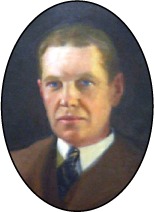
“… for the secret of the care of the patient is in caring for the patient.”
— FWP
I got goosebumps!” was the last comment my grandmother made about my decision to pursue a medical career.
My commitment to healing others started when, as a young man, I began caring for a close friend in Mexico. Once brilliant and successful, he had become suicidal and addicted to cocaine. I did not fully understand why he had changed, but I listened to him and supported him. When I moved to the United States, my friend's health worsened, which jeopardized his family and business. It hurt me to see him destroy his life through his detrimental habits. Between cross-border visits, I would wonder whether he were still alive. He was malnourished and often snorted powder or smoked crack—the polar opposite of the man whom I had previously admired. My burning desire to help people like my friend, coupled with an ardent motivation to attain a quality education, inspired me to pursue a medical degree.
Having grown up on both sides of the Mexico-U.S. border, I understood the widespread need for comprehensive medical care. My community involvement in South Texas ignited my interest in rural medicine and global health. This interest blossomed into passion during my college years, when I traveled to Gigante, Nicaragua, as part of the town's first-ever international medical brigade. My host family lived in a small house that had an aluminum roof, no running water, and no air conditioning. They had a backyard wash basin, latrine, bucket shower, and clothesline, typical living conditions in the communities around my hometown in Mexico. Immersing myself in the hardships of this impoverished Nicaraguan village strengthened my desire to serve those most in need.
In medical school, I continued to participate in medical missions locally and abroad. During my first trip to Guatemala, my aim was to care for the underserved, but I also received a new lesson about quality of life from a humble man who had a fractured hip. As we treated him and offered medication, he grabbed my hand and said, “All I need is bread, the Bible, and patience.” This man's indomitable will and that of the community inspired me deeply. Despite poverty and violence, the residents strove to overcome their hardships, and this made me eager to return to them with a wider array of skills.
During my internal medicine rotation in Houston, I had the privilege of treating a Spanish-speaking woman who was admitted with metastatic adenoid cystic carcinoma of the salivary glands. The language barrier made me the only medical team member who could communicate with her. She was anxious and depressed about her condition; however, as the days passed, she started smiling at me every morning when I walked into her room. She even blew me a kiss when I told her that her family from Mexico was coming to visit. The day she died, her son was at peace. He appreciated how I had cared for her and said that she had called me “the young man who speaks Spanish.” It satisfied me immensely that his mother had spent her last days feeling comfortable and loved. Medical care is not purely medical; it includes bringing happiness to patients through each stage of their lives.
Whether we as physicians practice family medicine, psychiatry, surgery, or another specialty, we can uplift our patients. People need both healing and support, regardless of where they live. Even amidst the fog of dementia, my grandmother knew that a medical career meant lifelong learning, sacrifice, altruism, service, and compassion, and that gave her goosebumps. We can all give goosebumps to friends, colleagues, and relatives by showing them how we touch lives beyond providing physical care. From the beginning of our journeys as medical students to the end of our careers as retired physicians, we can always find a way to make a positive impact. As Olympics track star Steve Prefontaine said, “To give anything less than your best is to sacrifice the gift.”
Submissions for Peabody's Corner should 1) focus on the interpersonal aspects of a specific patient–doctor experience; 2) be written in storybook fashion; 3) contain no references; and 4) not exceed 5 double-spaced typescript pages.


